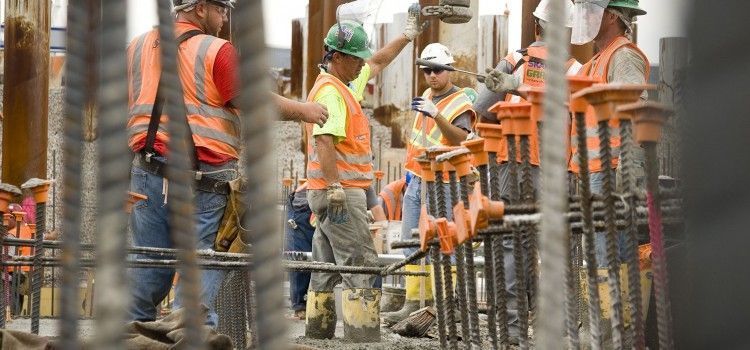
In the midst of the pandemic, the civil construction sector operates at full steam with 93% of its production capacity, working with protection, testing and monitoring
Civil construction becomes an example of the resumption of productive activities in Brazil when the curve of contamination by the Coronavirus decreases, informs the Minister of Economy, Paulo Guedes, together with other ministries of the federal government. Industry confidence in Brazil rises after loosening of quarantine measures
Read also
- Civil construction fears that measures will take away investment capacity in the sector
- Historic action on oil royalties is favorable to Santa Catarina and may generate compensation for the state
- Petrobras and Açú Petróleo sign a contract that can double the flow at the Port of Açú
According to Guedes, civil construction - an essential sector for the country's economy and which did not paralyze during the pandemic, is the model to be followed
He adds that, by knowing how to control the pace of operation at construction sites, civil construction had a very low contamination rate compared to the volume of workers involved.
For the minister, civil construction knew how to protect itself, mentioning that the sector operates with 93% of its productive capacity. The data are from the Brazilian Construction Industry Chamber, CBIC. “The sector knew how to protect, test, monitor and treat, drastically reducing contagions”, he says.
Since the beginning of the epidemic in Brazil, 10 construction workers have died due to COVID-19, in a universe of 2 million people who work with a formal contract, and directly in the segment.
The survey shows that all construction works in the states of the South, Southeast and Midwest regions are in progress, as well as Amapá and Amazonas, in the northern region.
In the northeast region, Paraíba is divided. The only states where the works are completely stopped are Piauí and Sergipe. On the other hand, Alagoas, Rio Grande do Norte and Maranhão operate with 100% in civil construction, while Bahia and Ceará resumed activities in early June.
Safety at work in construction
Guedes argues that the safe return to activities is segmented. “It won't be everyone at the same time. It will be by geographical units. In regions with higher population density, the risk of contagion is greater. So all of that is going to be scrutinized, based on reports. When health permits, and gives the signal that it is time to move forward, we will move forward”, says the minister.
Ana Cláudia Gomes, president of the social responsibility commission of the Brazilian Chamber of the Construction Industry (CBICMore), reveals why construction safety protocols became a model for the federal government.
“Civil construction class entities and companies are going beyond the established protective and health measures. They are also concerned with the worker on the way home and with him in contact with his family”, she reveals.
It is worth remembering that well before the pandemic took hold in Brazil, safety at work was a law within civil construction. The presence of workers at the construction site is only allowed with the proper use of personal protective equipment (PPE).
Therefore, objects such as masks, gloves, safety glasses and helmets are nothing new for those working on construction sites. It is what allows the worker in the sector to take the lead when it comes to protection against COVID-19.












Army summons Brazilians with up to…
Come be a watermelon, you too
Air Force F-16 fighters…
Which genocide are you talking about? Than…
Air Force F-16 fighters…
Everything is fine, 100-year secrecy,…
Air Force F-16 fighters…
Well... It's flying scrap... Typical...
Brazil begins an ambitious journey…
Very poor project with the final station…
Gostaria de fazer essas aulas.
Why are they going to reuse the 300…
Brazilians need to read more lol. Oh…
There is niobium in several mines around the world,…
I am a nursing technician and I want to…
This is Toyota's move, to readjust...
Nuclear FUSION does not generate radioactive material,…
Always a great job opportunity…